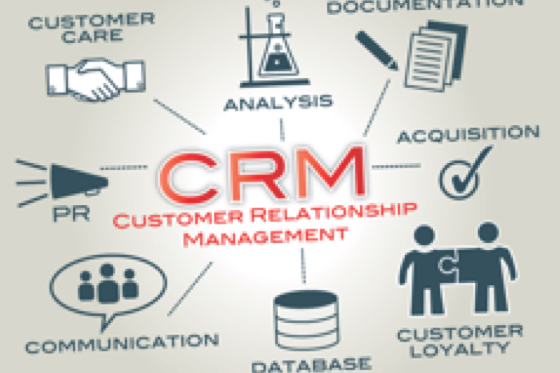Hong Kong’s 262-room luxury lifestyle Hotel Icon, owned by Hong Kong Polytechnic University, is a unique training hotel that experiments with ideas such as replacing the traditional director of sales and marketing with a “business strategist.” For General Manager Richard Hatter, this approach in a very competitive market has become a business imperative.
Three departments at Hotel Icon report to the strategist: revenue, e-commerce/community and sales. Hatter attributes the property’s market-leading RevPAR numbers to this cutting-edge structure.
“Our marketing and technology slant is driven with strategic innovation and a strong revenue-management slant,” Hatter explained. “Honestly, this style or role won’t suit everyone, as we operate in a non-conventional flat organization hierarchy being an independent hotel that likes to experiment and is not constrained by the typical chain herd mentality. We like to challenge and be challenged, to innovate and experiment. Only the most entrepreneurial and creative performers will achieve success here.”
The Hotel Icon “marketing” team is also required to teach degree students, speak at conferences about revenue and distribution, and further develop their SEO knowledge. Hatter says these team members go through a rigorous revenue aptitude test and must score 80%. “They also must be very self-motivated as they will spend 80% of their time on their own with minimal resources,” he added.

The way forward
While Hatter has unique freedom to break away from the norm, others are grappling with the idea of better integrating traditional sales and marketing departments with geeky data providers.
Hilton Worldwide Vice President of CRM Jonathan Wardman said his company found that letting each department manage its own data and analytics meant they were missing opportunities. “Three years ago we created a commercial services analytics team that specializes in managing the health of data, data flows and structure,” he said. “They have counterparts in technology and analytics who I can tap into for my CRM needs for performance dashboards, to merge data and increase its marketable universe. That person taps into expertise in the analytics group for data management, integration and forecasting. I can tap into those specialties, and the functional expertise can be tapped into by anyone. This structure has allowed for crossover and sharing of goals to achieve commercial outcomes technology can enable. It’s a key part of why we are addressing this quite well.”
At the same time, Wardman said Hilton is beginning to set up its own digital department deliberately outside of marketing and IT to build things quickly. He said Hilton needed to create overlaps between marketing, digital and IT with partnerships. “We have global data-development team members who are encouraged to block a day to learn what is important to another function and are encouraged to think outside their discipline,” he said. “These three areas tend to move within.”
Wardman added that while it is great to create a structure to bring people together to move the needle, there is a lot to be said for the power of trust between disciplines. “What slows things down can be the inability to have straight conversations with people,” he said. “It changes the way you work with people. When done constructively it makes a huge difference. You can spend weeks building a PowerPoint deck to convince someone, or you can have a direct conversation and address the real things on their mind.”
From an independent hotelier’s point of view, today’s sales and marketing director must be involved in disciplines like revenue management, said Alex Gregory, director of sales and marketing at the Sea Island Co. in Georgia. “‘Revenue strategist’ is the title starting to proliferate,” he said. “It’s a fancy way of saying you are in charge of all the revenue, which is the role. You need to be multi-disciplined in the role to be effective. You need to know how to influence and act. The convergence of all of those disciplines is here, and if you don’t have that in your bag of tricks you are not long for the job.”
Gregory suggested independent operators should engage outside experts in data mining, if for no other reason than not to stress existing resources. He also recommended the Hospitality Sales & Marketing Association International (HSMAI) as an educational resource for better integrating sales and data departments. “It’s a great opportunity to take a first step and get exposed to what is happening,” he noted.
At Sea Island, Gregory said there is constant, daily and hourly collaboration between the sales and yield-management teams. “It’s tightly wound together,” Gregory explained. “It’s the pulse of our business. We rely on all those touchpoints to make sure we are doing the right thing at the right time.”
Breaking down the job of the ‘business strategist’
Hong Kong’s Hotel Icon has experimented with ideas such as replacing the traditional director of sales and marketing with a “business strategist.” The Hotel Icon business strategist’s core functions include:
- Daily involvement in revenue, e-commerce and channel-management operation.
- Active participation in deployment and development of revenue strategy initiatives.
- Coaching and educating the revenue-management, e-commerce and business-development teams on demand generation and business development.
- Developing and leading the sharing of best practices, providing support for key revenue meetings and offering strategic insight to the executive committee.
- Collaborating with operations, finance and marketing to develop and align revenue-management strategies with key business strategies.
- Detailed study of the hotel’s market segmentation and understanding the gap to fulfill and exceed budget.
- Understanding the shortfalls, growth and variance in each market segment (demographics and nationalities) and ensuring augmentation to the growing sector.

